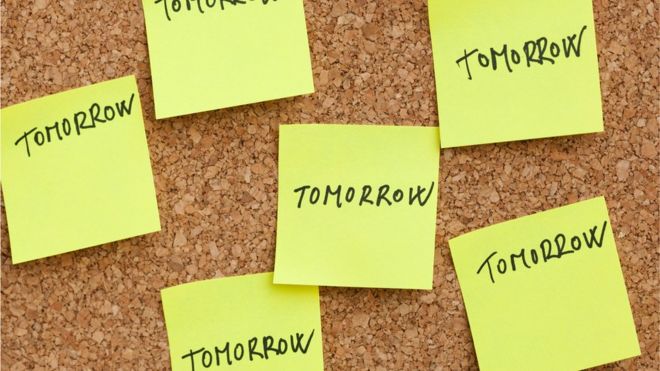Having all the time in my life can be problematic. A freelancer and self-confessed procrastinator such as myself runs amok without a manager or boss to render discipline on tardiness and 3-hour lunch breaks. Still, I don’t want to go back to the office for a more organized life. I love my chaotic schedule and abstract sense of time.

A new concept of time
In Alvin Toffler’s The Third Wave, he said that the value of punctuality and our linear concept of time were actually brought about to fit the way we worked in the industrial age. Being on time was essential because one person’s inefficiency affected the whole system (such as in a factory where things operated like clock-work). In a digital workplace where businesses and freelancers are electronically connected and live in different parts of the world and have different time zones, and where technologies and trends change at an increasingly fast rate and everything is dynamic, the concept of time becomes more relative (which, interestingly, can be linked to Einstein’s theory on the relativity of time). This means that in the digital age, what Toffler calls the third wave, what is more valuable is flexibility rather than punctuality.
Drinking with friends as the highest form of art
This flexibility in my schedule gives me more time to drink with friends since I don’t have to worry about my hangover the next day and can simply adjust my work schedule to a later time. And it’s not just about the drinking and socialising and partying. Contrary to popular belief, drinking with friends can be productive and be considered an art form provided that you’re in good company (i.e. your friends are interesting). Take it from Tom Marion’s Beer, Art and Philosophy: The Art of Drinking Beer with Friends is the Highest Form of Art. When I’m drinking with friends, I could actually say that I’m working because I get a lot of ideas and insights that I can use in my writing.
Voluntary simplicity for better imagination
Even though there are days (a lot of days) when I have to survive on cheese and tomato sandwiches and have to think of more innovative ways to prepare tuna or sardines, I’m not going to trade my freelance lifestyle for a regular paycheck. I know, as what J.K. Rowling said in her Harvard commencement speech, you can’t really romanticise poverty. But sometimes, I do find, that not having the money to buy me some good food (which I have an absolute weakness for) and cool clothes and hip gadgets allows me to concentrate on loftier thoughts.Without the temporary highs and easy temptations, I’m forced to use my brain and imagination. For instance, when I worked in the office, I didn’t have the luxury to think about grand things like the theory of everything or the origin of the universe, it seemed irrelevant and impractical, even out-of-this-world (something that only dopeheads had the luxury to think about, it seemed to me at that time). But now that I have all this free time, I can read Quantum Mechanics for Dummies and take my sweet time reading one sentence five times, explore comparative mythology and question religious truths, listen and try to comprehend sound art while sipping coffee and contemplating what to do next, cook, play the guitar, read a good book, read a difficult book, philosophize, conceptualize, imagine—the things I’ve been dreaming of doing when I get to retire, now I can actually do them! Well, minus the glass house and good wine.
Looking at opportunity costs
But the randomness and freedom of it all can also get confusing and saturating. Looking at the opportunity cost on one level, reading Stephen Hawking for an hour is a much more valuable investment for my mind than, say, finishing an article on payday loans for an hour, which I get paid for $5 or less. Then again, finishing the article will meet an immediate need—money, which we all know, takes precedence in the game of survival. Conflict, however, as we also know, makes life all the more interesting and rewarding. The challenge for me now is to reconcile my time to explore, learn and imagine and my time to get assignments done—an abstract or relative time management scheme, maybe (whatever that means).
Welcome to the future of work
“Imagine organisations where bosses give employees huge freedom to decide what to do and when to do it. Imagine electing your own bosses and voting directly on important company decisions. Imagine organisations where most workers aren’t employees at all, but electronically connected freelancers living wherever they want to. And imagine that all this freedom in business lets people get more of whatever they really want in life—money, interesting work, helping other people, or time with their families.” (From The Future of Work, by renowned organisational theorist Thomas W. Malone, co-director of MIT’s landmark initiative “Inventing the Organizations of the 21st Century”)
Yeah, these are no longer the stuff of science fiction or some futuristic Utopian ideal. Today, at this point in time, we’re getting there.